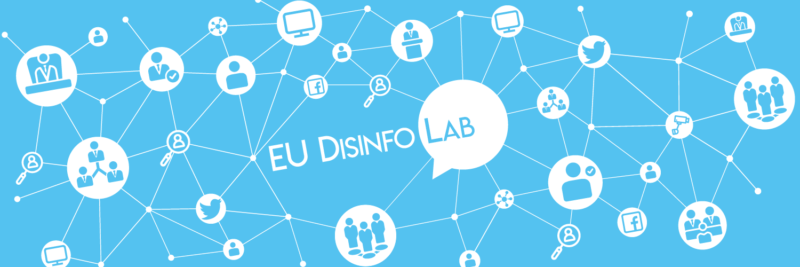Dr. Evil

On 18 December, the next DisinfoLab will feature Mieje Arentze from Drog, a research and media-literacy initiative that will teach you how to create your very own fake-news. So, build your army of online trolls and spread conspiracies to influence the public debate and contemplate the dangerous implications disinformation can have on your daily life and society as a whole!
Facebook Season 3 Episode 6 : Thanksgiving
Elliot Schrage, Facebook’s outgoing head of communications and policy, took responsibility for hiring Definers Public Affairs in a blog post on the eve of the US Thanksgiving holiday. He admitted mandating the firm to investigate “Freedom from Facebook” campaign financing by George Soros. The whole company policy towards external consulting firms will be reviewed he claims.
An international “Grand Committee” of national parliaments (UK, Canada, Australia, Argentina, Irland, Brasil, Latvia and Singapour), called for Mark Zuckerberg to appear in an audition in London on November 27. Zuckerberg turned down the request, but Policy VP Richard Allan will go. In reply, the Parliament has used its legal powers to seize internal Facebook documents alleged to contain significant revelations about Facebook decisions on data and privacy controls that led to the Cambridge Analytica scandal.
This call happens just when the LSE Commission on Truth, Trust and Technology, a group made up of British MPs, academics and industry leaders, proposed the Government should hand fresh powers to a new observation body in the UK, rather than existing regulators such as Ofcom and the Information Commissioner.
Journalists: one for all, all for one
In an age of misinformation, is collaboration the future of journalism? Former Vice CTO Jesse Knight advocates for media to consolidate a common publishing platform, and thus gain independence from Google and social media platforms. First Draft also calls for support of sustainable newsroom collaborations and verification projects. Verification project “Comprova” in Brazil is a concrete example of such cooperation. In the context of Brazilian elections, partners worked on debunking rumors and suspicious content on social media and on WhatsApp.
Good bots / Bad bots?
Speaking of Whatsapp, Witness, an NGO working on teaching people to use video to
Good news, such reverse databases already exists for Twitter. In the lead up to last month’s election in Brazil, Aos Fatos built a Twitter bot that automatically corrects people who share fake news stories. Called Fátima, the automated account leverages AI to scan Twitter for URLs that match fact checks in Aos Fatos’ database of articles. Then, the bot replies to the Twitter user with a link to the fact check. Bots spread a lot of fakery, but they can also debunk it.
Library
What to read, watch and listen to this week:
- Bellingcat – Truth in a Post-Truth World: the movie on the fact-checking collective
- The long history of Russian disinformation targeting the U.S.
Exposure to opposing views on social media can increase political polarization: Scholars discovered that Republicans’ attitudes grew more conservative after following a Twitter account that retweeted liberal messages. Democrats who followed an account that shared conservative messages became slightly more liberal, although that change was not statistically significant. - Duty, Identity, Credibility: Fake news and the ordinary citizen in India: a BBC news report
- Users Can Rarely Remember the Source of News on Social Media: research article published in SAGE journals.
Agenda
- November 29 @ Berlin – Digitaler Salon: Alles nur
gefakt ?Organised by Alexander von Humboldt Institute for Internet and Society - November 29 @ Amsterdam – Media von Morgen
- December 4-6 @ Vienna – ICT 2018: Imagine Digital – Connect Europe don’t miss
the networking session on online disinformation. Scheduled for 5 Dec, and hosted by InVID_EU - November 29 @ Berlin – Digitaler Salon: Alles nur
gefakt ?Organised by Alexander von Humboldt Institute for Internet and Society - November 29 @ Amsterdam – Media von Morgen
- December 4-6 @ Vienna – ICT 2018: Imagine Digital – Connect Europe don’t miss
the networking session on online disinformation. Scheduled for 5 Dec, 16:30 to 17:15, in Hall L4 and hosted by InVID_EU
HR corner
- Interpol presidency vote: Russia in surprise loss to South Korea. A relief for many in the disinfo community.
- Bellingcat is hiring a business Director
- Reuters Institute for the Study of Journalism is hiring a Director of Research and a head of communications





